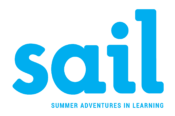For Policy Makers
A child’s education is the foundation for his or her success as an adult. Yet in 2024, only 53% of Alabama students were proficient in English Language Arts and only 31% were proficient in Math link. There is modest improvement over the past few years, but dramatic progress is required for the sake of our children.
- ♦ Over the past decade, a number of studies (e.g., National Summer Learning Association, RAND Corporation, and Wallace Foundation) have identified summer learning as a powerful strategy for closing the achievement gap.
- ♦ Federal education policy recognized this body of work in 2020, when the Elementary and Secondary School Emergency Relief (ESSR) Act set aside funding to be used for both school-based and community-based summer learning.
- ♦ A 2023 study published by McKinsey & Company proposed strategies for using ESSR funds more effectively link. Two of these strategies are especially well addressed by community-based summer learning:
- ◊ Using an equity framework to allocate resources
- ◊ Increasing instructional time for students who need it the most
- ♦ SAIL’s approach incorporates these two strategies. We direct funds to the community-based and faith-based organizations who serve the families in greatest need, and help them develop high-quality programs with rigorous academics.
- ♦ In 2019, Alabama legislators approved the Alabama Literacy Act (Act 2019-523). It requires state public schools to offer summer learning camps to struggling readers. The Act states, “Summer reading camps may be held in conjunction with existing summer programs in the school district or partnership with community-based summer programs, designated as effective.”
- ♦ In February, 2020, Governor Ivey’s Campaign for Grade-Level Reading recommended that community-based summer learning be leveraged to offer additional support for struggling readers. To see the recommendations, click here. Pages 16-17 cover (at a high level) the recommendations for “Learning Outside the Classroom”, including summer learning. Pages 81-92 provide the Report of the Summer Learning Committee; it provides an in-depth discussion of whole-child, community-based summer learning.
- ♦ In 2022, Governor Ivey initiated a public funding stream for community-based summer and afterschool learning in Alabama (ASAP Grants)
- ◊ ASAP Grants were first awarded for the summer of 2023. The grants were considered a pilot, and were a resounding success; to see SAIL’s report, click here.
- ◊ For 2026, the funding amount was increased to $17.2 Million. In addition, standards of quality are now prescribed to promote program quality and produce better outcomes over time.
- ♦ The community-based model of summer learning is proven to help close the achievement gap in a cost-effective manner.
- ♦ We must all use our influence at the state and local levels to promote community-based summer learning; every voice counts.
- ♦ This website provides many resources that will aid in seeking policy changes. For further assistance, contact Jim Wooten link.
